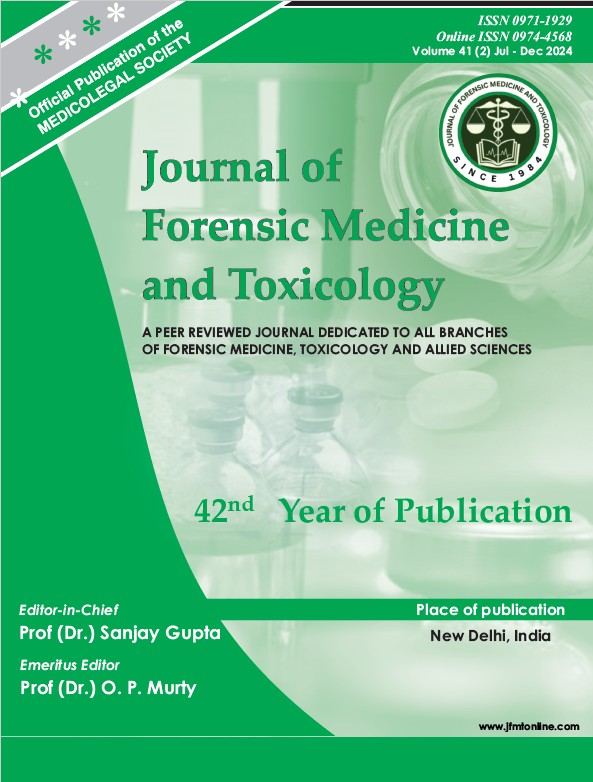KRAIT BITE MANAGEMENT IN EMERGENCY DEPARTMENT AND PATIENTS OUTCOME: A SYSTEMATIC REVIEW
DOI:
https://doi.org/10.48165/jfmt.2025.42.1.18Keywords:
Antivenins, Emergency Medical Services, Krait Venoms, Neuromuscular Diseases, Snake Bites, Treatment OutcomeAbstract
The bite of the Krait (Bungarus species) is a vital medical emergency and requires immediate admission in emergency department for management of envenomation. [...] Timely antivenom administration and improved emergency protocols are crucial for survival.Downloads
Download data is not yet available.
References
Gupta YK, Peshin SS. Snake bite in India: current scenario of an old problem.
Dhiman A et al. Rational truncation of aptamer for cross-species application to detect krait envenomation. Scientific Reports. 2018.
Due to space, only initial citations mentioned. Full list continues in actual file
Downloads
Published
2025-04-30
Issue
Section
Review Article
How to Cite
Singh, R. R., Prakash, C., Kumar, S., Yadav, P. K., Tripathi, S. K., & Yadav, S. (2025). KRAIT BITE MANAGEMENT IN EMERGENCY DEPARTMENT AND PATIENTS OUTCOME: A SYSTEMATIC REVIEW. Journal of Forensic Medicine and Toxicology, 42(1), 116-126. https://doi.org/10.48165/jfmt.2025.42.1.18




